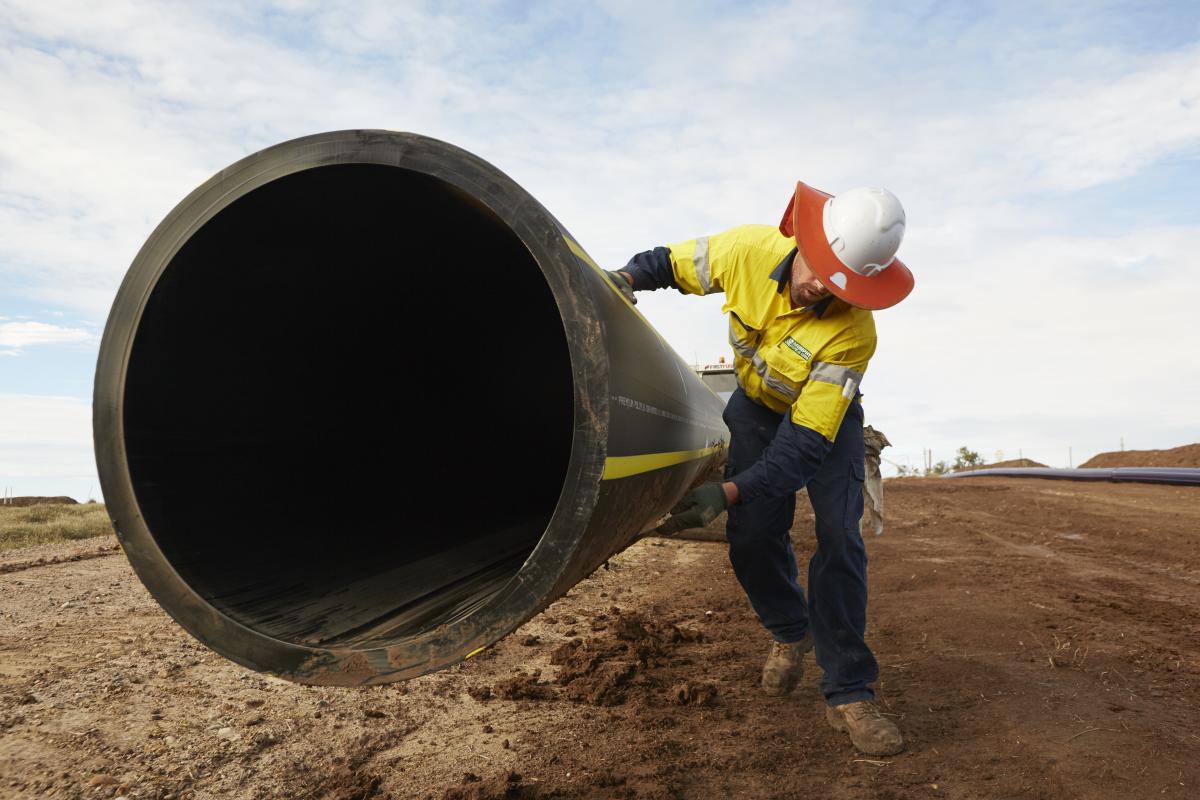
Health, Safety and Environment Committee

APGA and its members recognise that the future of our industry and each member company depends on the wellbeing of employees and the environment.
We recognise our responsibility to ensure that all of our people get home safely at the end of each day, and the legacy that our resource use and environmental impact leaves for future generations.
While our social licence to operate depends on our record on safety and the environment, our commitment to each goes beyond complying with relevant laws and regulations – protecting our people and our environment is fundamental to our culture.
Health and Safety
APGA’s commitment to safety begins with the premise that everyone has the right to a safe workplace.
Everyone, at every level, in every company, is responsible for workplace safety.
Part of this work includes managing the APGA Safety Statistics – a register of safety incidents and near-misses which can be used to identify trends and areas of concern to be addressed, as well as provide the necessary evidence to demonstrate our safety record to regulators and other interested parties.
APGA’s members have encouraged the promotion of health and safety throughout the pipeline industry.
The Australian pipeline industry’s safety record is impeccable and the activities of the Health and Safety Committee keep the industry focussed on maintaining this excellent record.
Safety Statistics
Part of the committee’s focus is also considering ways to develop more consistent vocational-based training, particularly for the construction sector, to better enable workforce mobility and build consistency in skill levels of workers. APGA is the industry association representative on the Gas Industry Reference Committee which is responsible for national training package qualifications relevant to the supply of natural gas via transmission and distribution pipelines, and liquid petroleum gas (LPG) via cylinders, to a variety of domestic and manufacturing customers.
Environment

APGA and its members are committed to being leaders in ecologically sustainable development and active contributors to national goals on biodiversity protection and greenhouse mitigation.
Each pipeline construction job is unique – each requires an environmental protection and management plan that reflects the individual nature of the pipeline and its location. That is why each of our member companies develops and adheres to its own stringent Environmental Management System.
The HSE Committee has formed an Environmental Risk and Compliance Subcommittee to consider and provide advice and guidance on environmental management issues. The subcommittee also provides a unified industry voice on environmental issues and increasing the clarity and practicality of guidelines and other tools.
The Code, which has since been written into most specifications for building pipelines in this country, provides industry accepted guidance on environmental management through the planning and asset acquisition, construction, operational and decommissioning phases of a pipelines’ lifecycle.
As with previous editions, the latest edition, published in 2022, incorporates the work of key environmental regulators across the nation.
The subcommittee has also developed and published a new guideline to assist members and others in the industry to understand how biodiversity offsets work and when they may apply.
With eight jurisdictions across the nation having legislation, regulation, policy and processes that govern biodiversity offsets, it can be difficult to discern obligations, especially for projects that cross into different States and Territories.
The Biodiversity Offsets Guideline, published in September 2019, provides an indispensable introduction to assist in understanding the range of actions that might be required by different projects.
You can download your own copy in Guidelines and Codes of Practice.
Resources
- Canadian Sideboom Operator Training Standard
- Hydrotesting
- Safe working loads
- Driving and working in isolation and remote locations
- Using angle grinders and buffs
- In 2011, APGA conducted a drug and alcohol survey of members in order to understand current management systems and develop common standards and practices for the industry. The results of this study are available at are incorporated into Drug and Alcohol Management Guidelines.
- A fatigue management study was undertaken at the QCLNG Export Pipeline Project. The study builds on previous research to assess the impact on workers of the 28-days-on-nine-days-off cycle and use of fatigue mitigation factors. The Fatigue Management Guidelines and Fatigue Management Handbook were produced from the study.
Committee Members




